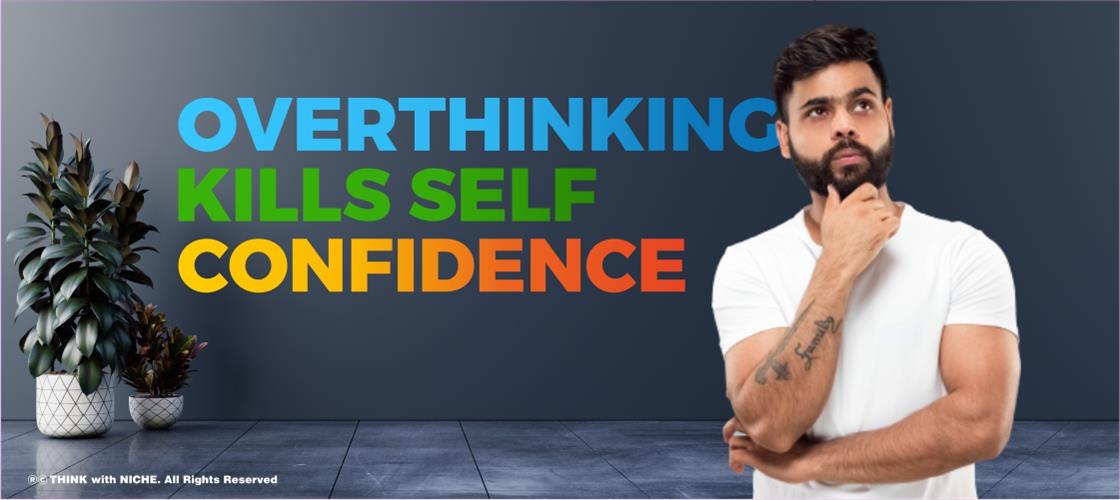How To Build Confidence Within Yourself?

Blog Post
Think With Niche writes about the various ways of building up confidence within yourself for all spheres of your life. #TWN
Confidence is a state of mind, not something that can be learned like a set of rules. Positive thinking, practice, training, education, and chatting with others are all effective techniques to develop or boost your confidence. Feelings of well-being, acceptance of your body and mind (self-esteem), and belief in your own ability, abilities, and experience contribute to confidence. Most people would like to have more confidence. Many successful people attribute their success to their sense of self and confidence. However, few people truly describe how to develop confidence or how to get confidence. It's difficult because confidence is based on a variety of factors, but in general, it's based on choices and accomplishments that fuel your passion and make you feel happy and proud of who you are. In this article, we will guide you on how to build confidence within yourself.
What Is Confidence?
Do you ever feel as if everyone around you is self-assured and sure of themselves? They, too, are likely to have reservations. Confidence is defined as a feeling of conviction that you can achieve everything you set your mind to. Confidence originates from within, and you can always discover reasons to trust in yourself. Learning to be self-assured is beneficial in all aspects of life, but there are moments when it is especially critical – especially when you feel like giving up. Being confident is non-negotiable if you are a leader in a position that requires you to be convincing and trustworthy. No one wants to follow a leader who appears insecure. Lack of confidence can have a significant impact on your ability to assemble a winning team and lead them to achieve your common objectives. Whether you're in sales or need to maintain a confident demeanor when dealing with clients regularly. Being self-assured allows you to develop quick connections and form partnerships that will help you and your organization prosper.
How to Build Confidence?
Here are some tips on how you can build confidence:
Focus On Positivity
Most self-assured people live by a set of values and make decisions based on those values, even when it's difficult and not always in their best interests, but for the larger good. Your character is defined by your actions and decisions. Ask yourself what you would do if you were the best version of yourself, and then do it. Even though it's difficult and the last thing you want to do, and it requires a short-term sacrifice on your part, you'll like yourself more and be prouder of who you are in the long run. Take some time to discover how confidence makes you feel in your body. "How will you know when you've reached a suitable degree of self-confidence?" is a smart question to ask. Perhaps you'll become more assertive at work. You might be able to wear the clothing you've wanted to wear for a long time. In your co-working space, you may even introduce yourself to your crush. It will vary from person to person! Thus, it doesn't need to make sense to anyone else. It is your own measure of self-assurance. A growth mindset drives you to look beyond your existing abilities and knowledge, always looking for ways to improve. Simply add the word "yet" to words like "I'm not confident," and the old thinking becomes "I'm not confident yet." It adds the condition that you are learning new abilities to acquire confidence. Growth mindset interventions boosted high school math results, according to a 2019 study, and they improved, even more, when students were engaged in situations that fostered growth mindset principles. As a result, it's worthwhile to share your new growth mentality with others who share it.
Don't Be Afraid of the Emotions
Emotions have a beginning, middle, and end to them. Although emotions can feel overwhelming at times, they are only fleeting. Emotions are physiological responses to stimuli in your surroundings at their most fundamental level. You may experience an acute pang of worry if your Wi-Fi goes out soon before your job presentation. Any emotion that is holding you back from taking action, such as anxiety, stress, or fear, is just temporary in terms of confidence. You can make your next move once it has subsided. "Feel the fear and do it anyhow," as the cliché goes. What do you enjoy doing in your free time? Is it to go outside and hike, kayak, or simply enjoy the scenery? Or do you want to spend your days lounging on your couch, watching all of the great television that is available? Whatever it is that you enjoy, make time for it since life is short, and you need time to nourish and recharge to be your best self. Folks admire people who claim they'll do something and then follow through. More significantly, if you say you're going to do something and then do it, you'll respect yourself more, and believing in yourself will be simpler because you'll know you're not afraid of the effort.
Learn And Expand Your Psychological Horizons
Learning and research can help us gain confidence in our abilities to handle different situations, responsibilities, and tasks. Knowing what to expect, as well as how and why things are done, will increase your awareness and, in turn, help you feel more prepared and confident. Learning and accumulating knowledge, on the other hand, can sometimes make us feel insecure about our skills to fulfill roles and responsibilities, and when this happens, we must combine our knowledge with experience. We put theory into practice by doing something we've studied a lot about, which builds confidence and improves learning and comprehension. Parents-to-be who are expecting their first child may be apprehensive and insecure. They are more inclined to purchase books or go to websites that can provide guidance and clear up some of the riddles. They are also likely to seek information and understanding from other parents. Employees may be given training in the workplace to teach them how to manage or work with new systems and procedures. It is especially crucial during a period of organizational transformation, as many people instinctively resist change. However, if people who will be affected by the changes are given enough information and training, resistance to the changes can usually be reduced because employees will feel more prepared and confident with the new system.
If you liked reading this article, we have two more for you. Click on the link below to explore!
Overthinking Kills Self Confidence
You May Like
EDITOR’S CHOICE














